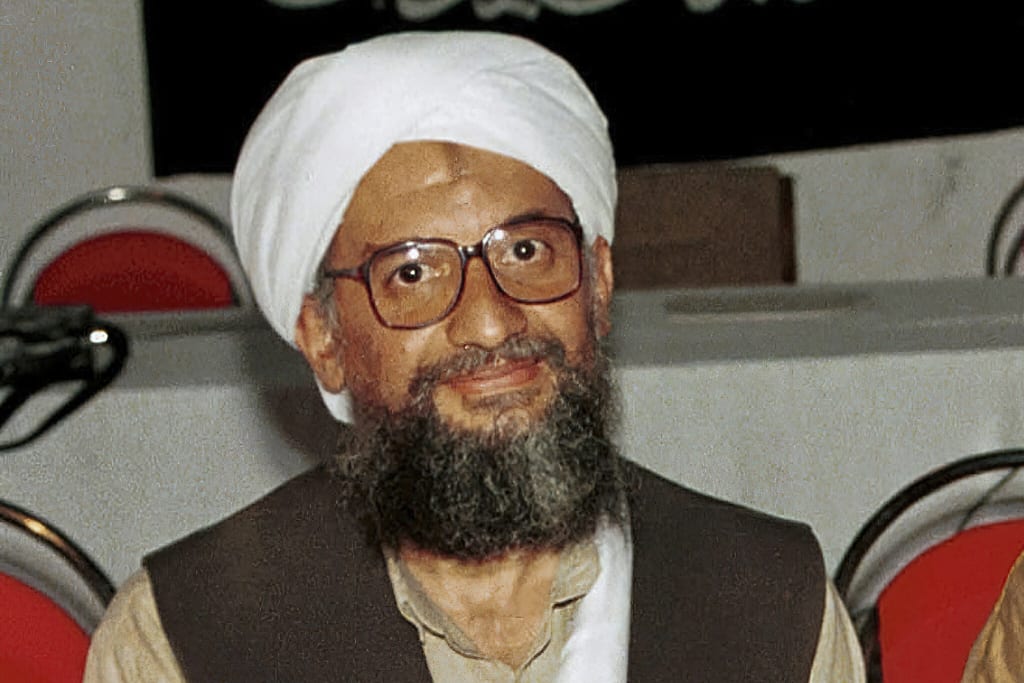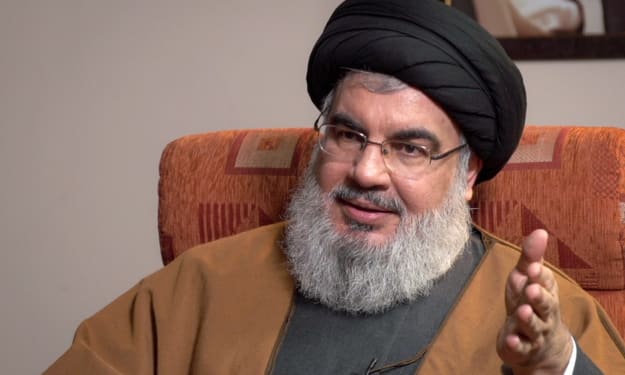Unveiling the Dark Legacy of Ayman al-Zawahiri
The Face of Terrorism

In the annals of terrorism, few names evoke as much dread and revulsion as Ayman al-Zawahiri. Born on June 19, 1951, in Maadi, Egypt, al-Zawahiri would rise to infamy as a key architect of modern jihadist ideology and a principal orchestrator of terrorist attacks that have left an indelible mark on the global consciousness. While some may attempt to romanticize his actions or justify his cause, the reality is far grimmer, as his life's work has been characterized by violence, fanaticism, and an unyielding commitment to spreading chaos and terror.
From his formative years, Ayman al-Zawahiri exhibited an early inclination toward radicalism. Raised in a conservative Muslim household, he was deeply influenced by the teachings of his parents, who instilled in him a fervent devotion to Islamist ideology. This devout upbringing laid the groundwork for al-Zawahiri's eventual radicalization, setting him on a collision course with the values of tolerance, peace, and coexistence.
Al-Zawahiri's journey into extremism gained momentum during his time as a medical student at Cairo University, where he became involved with the Muslim Brotherhood, a fundamentalist Islamist organization that advocated for the establishment of a Sharia-based society. It was within the ranks of the Brotherhood that al-Zawahiri first encountered the intoxicating allure of jihad, a concept that would come to dominate his worldview and drive his actions in the years to come.
As the political landscape of the Middle East underwent seismic shifts in the latter half of the 20th century, al-Zawahiri found himself increasingly drawn to the militant fringe of the Islamist movement. He became associated with groups such as Egyptian Islamic Jihad (EIJ), which espoused a violent, revolutionary agenda aimed at overthrowing secular governments and establishing Islamic states governed by Sharia law.
Al-Zawahiri's radicalization reached new heights following his involvement in the assassination of Egyptian President Anwar Sadat in 1981. The brazen act of violence, carried out by members of EIJ, served as a watershed moment in al-Zawahiri's life, cementing his commitment to armed struggle as the primary means of achieving his ideological objectives. It also marked the beginning of his transformation from a fringe militant to a central figure in the global jihadist movement.
In the years that followed, al-Zawahiri's path would intersect with that of Osama bin Laden, a wealthy Saudi exile who shared his zeal for jihad and anti-Western sentiment. The two men formed a symbiotic alliance, with al-Zawahiri providing ideological guidance and operational expertise, while bin Laden supplied the financial resources and organizational infrastructure needed to execute large-scale terrorist attacks.
Together, al-Zawahiri and bin Laden co-founded al-Qaeda, a terrorist network dedicated to waging war against the perceived enemies of Islam, particularly the United States and its Western allies. Under al-Zawahiri's influence, al-Qaeda would go on to perpetrate a series of audacious attacks that shocked the world and reshaped the geopolitical landscape.
One of the most infamous atrocities committed under al-Zawahiri's leadership was the September 11th attacks, which claimed the lives of nearly 3,000 innocent civilians and plunged the world into a new era of fear and uncertainty. The coordinated hijackings of commercial airliners and their subsequent use as weapons of mass destruction demonstrated al-Qaeda's capacity for unprecedented violence and underscored the group's determination to inflict maximum casualties on its enemies.
But the horrors of September 11th were just the beginning of al-Zawahiri's campaign of terror. In the years that followed, he continued to orchestrate a relentless onslaught of violence, targeting civilians, military personnel, and government officials alike in a bid to destabilize Western governments and provoke a global clash of civilizations.
Under al-Zawahiri's leadership, al-Qaeda expanded its operations beyond the borders of Afghanistan, establishing a network of sleeper cells and affiliate groups across the Middle East, Africa, and Asia. These decentralized, autonomous cells operated with relative impunity, carrying out a steady stream of bombings, assassinations, and kidnappings that sowed chaos and fear in communities around the world.
Among the most notorious affiliates of al-Qaeda was its branch in Iraq, led by the ruthless Abu Musab al-Zarqawi. Under al-Zarqawi's direction, the group waged a brutal campaign of sectarian violence, targeting Shiite Muslims and other perceived enemies of Sunni Islam in a bid to ignite a full-scale civil war. The atrocities committed by al-Zarqawi's followers, including beheadings, mass executions, and suicide bombings, shocked even the most hardened observers and further tarnished al-Qaeda's already blood-stained reputation.
But perhaps the most chilling aspect of al-Zawahiri's legacy is not the scale of his atrocities, but the twisted ideology that underpinned them. Throughout his life, he has espoused a toxic blend of religious extremism and political opportunism, using the guise of jihad to justify his insatiable thirst for power and influence.
Al-Zawahiri's vision of a global caliphate governed by Sharia law represents a grotesque distortion of Islamic principles, one that has been condemned by Muslim scholars and clerics around the world. His interpretation of jihad as a license to kill indiscriminately has been roundly rejected by mainstream Muslim communities, who view it as a perversion of the true teachings of Islam.
But despite the widespread condemnation of his actions, al-Zawahiri remains unrepentant, continuing to preach his message of hate and violence from the shadows. His very existence serves as a grim reminder of the dangers posed by extremism and the need for vigilance in the face of such threats.
In the end, the story of Ayman al-Zawahiri is not one of heroism or martyrdom, but of a man consumed by darkness and driven by a twisted vision of the world. His legacy is one of pain, suffering, and unspeakable horror, a stark reminder of the depths to which humanity can sink when consumed by hatred and fanaticism.
As we reflect on the life of Ayman al-Zawahiri, let us not forget the countless lives lost and the families torn apart by his actions. Let us remember the victims of terrorism, whose only crime was to be in the wrong place at the wrong time. And let us vow never to forget the lessons of history, lest we allow the darkness of extremism to engulf us once more. Only by confronting the truth of al-Zawahiri's legacy can we hope to prevent future generations from falling prey to the same toxic ideology that has wrought so much destruction and despair upon the world.
About the Creator
Sahil Lathwal
I'm Sahil, a passionate writer. My voice weaves stories, emotions, and melodies into an enchanting tapestry. Welcome to my world of creativity and expression. 🎶📝🎤





Comments
There are no comments for this story
Be the first to respond and start the conversation.